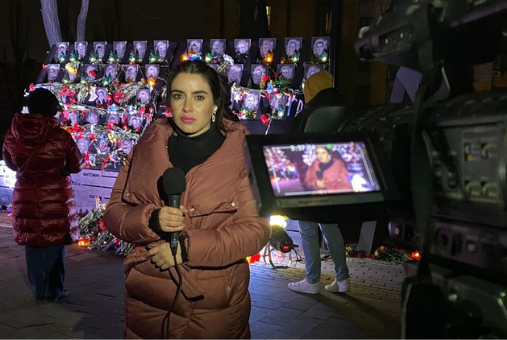
The Brazilian digital news outlets AzMina and Núcleo have created the Amplifica project, a tool to follow their readers’ debates on Twitter and to promote conversations between the public and the news outlets on the social network. The idea is that, by getting to know their public better and knowing what their interests are, the media can get closer to their readers and maximize the impact of the journalism they produce.

LatAm Journalism Review (LJR) heard from friends, co-workers and family of Brazilian journalist Tim Lopes, murdered on June 2, 2002. The case provoked profound changes in news companies, with the implementation of security measures and the reduction of coverage in at-risk areas. However, Brazilian journalists feel as vulnerable now, if not more so, than they did 20 years ago.

The COVID-19 pandemic highlighted a silent crisis among journalists: the deterioration of their mental health. In Latin America, ongoing initiatives seek to assess the mental health of journalists. They aim to help them cultivate emotional well-being in an adverse context that, in addition to the pandemic, includes widespread misinformation, as well as violence and hostility against journalists.

Inspired by a global trend, media labs are beginning to emerge within news organizations in Latin America to develop innovative journalism-oriented thinking, accelerate the application of technology, seek solutions to problems, and have an impact.

“It is an attack on freedom of expression and information,” journalist Rubens Valente said. The Superior Court of Justice and the Supreme Federal Court of Brazil ruled that Valente has to compensate Supreme Court Justice Gilmar Mendes because of information contained in Valente’s book “Operação Banqueiro.”

The Northeast region is the second most populous in Brazil, but has the lowest GDP per capita. Despite the economic limitations, independent journalistic initiatives are multiplying in the nine states of the Northeast and are capable of having an impact even with restricted resources.

A study carried out by Gênero e Número in partnership with Reporters Without Borders (RSF) presents data, testimonials and in-depth interviews on the impacts and effects of online disinformation and violence on the daily lives of women and LGBT+ journalists.

Among other measures to curb the spread of fake news, the bill stipulates the remuneration of journalistic organizations by large technology platforms. Proposal divides Brazilian journalists.

Big tech companies are more united than ever against the Brazilian bill that regulates platforms in order to fight fake news. The bill provides for the remuneration of journalistic organizations, but journalists themselves are divided. Payment by platforms for journalism is a trend, with agreements signed in Australia and France and contemplated in Canada and the United Kingdom.

Founded by a group of lawyers specializing in the defense of freedom of expression, the Tornavoz nonprofit will remunerate lawyers who work in cases received by the organization, in addition to providing technical assistance to the defense. The idea is for the remuneration to “strengthen the interest of lawyers in this area of practice,” Taís Gasparian, one of the directors and founders of the nonprofit, said.

An Argentine, a Chilean and a Brazilian share the challenges they have faced while covering the conflict from the front lines of this Eastern European country. A dangerous environment is not the only obstacle and challenge for journalists in Ukraine. The logistics of coverage have also been complex.

The Grande Prêmio website, founded in 1994 and dedicated exclusively to motorsports coverage, accused the newspaper O Estado de S.Paulo of copying 47 of its texts between December 2021 and February 2022. The newspaper said it “takes very seriously” the website’s accusation and said it is investigating the case and reviewing processes to understand what may have happened.